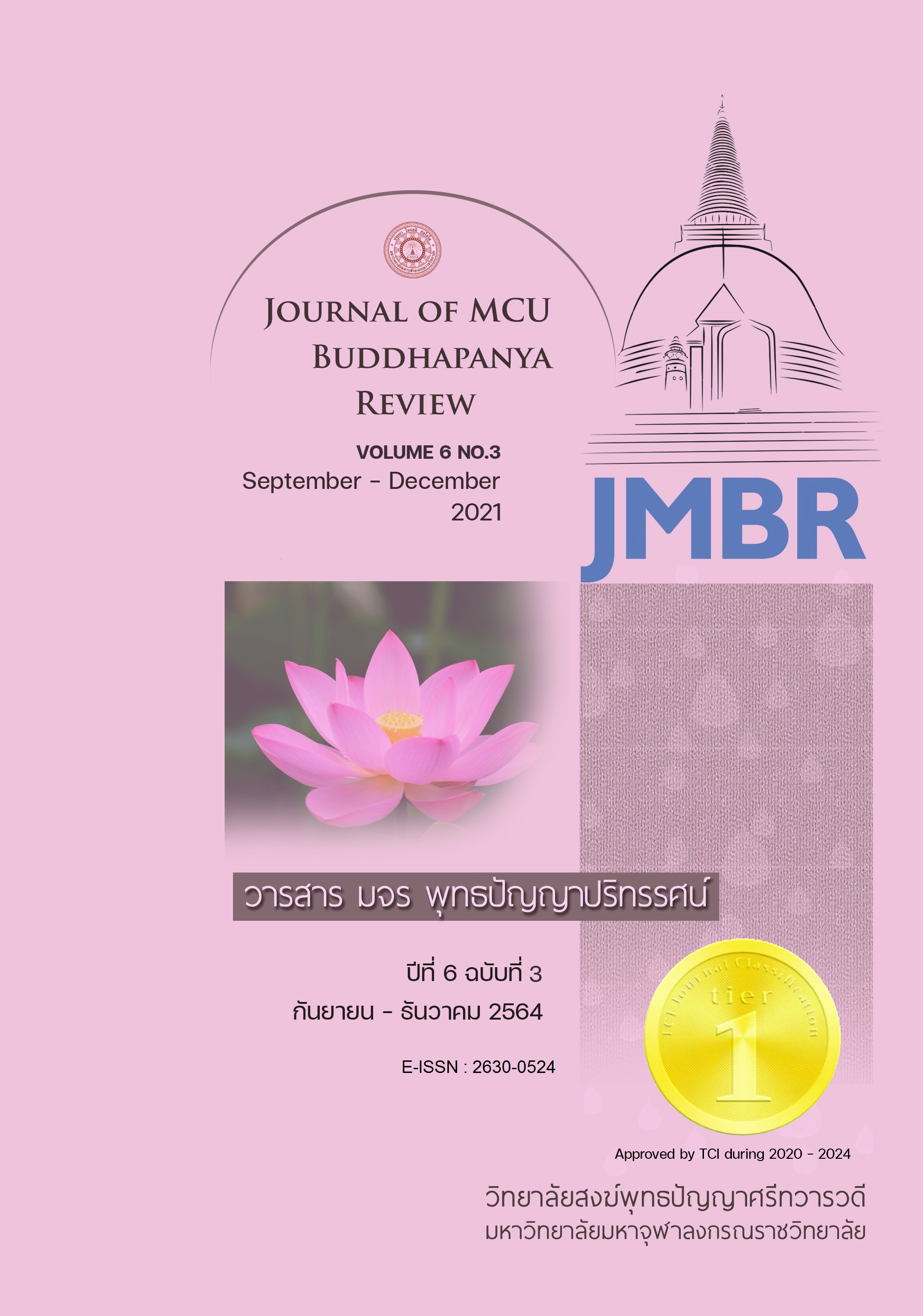Creating habits for self-development to succeed according to the Buddhist scriptures
Keywords:
Keywords: Habit, Behavior, Self-Improvement, Success.Abstract
This Researching habit to develop oneself for success according to Buddha.Using the theory of Napoleon Hill's Principles of Success, the 6 idiosyncrasies were collected using in-dept. Interviews qualitative research with information gathered from a group of successful individuals. Classified by successful people according to business occupation groups, 1 person per business, totaling 10 people, businesspeople private, business company executive’s relationship development specialist, Actor, Announcer, Singer, Speaker, Coach, Teacher, Monk The results of the research were as follows: 1) Habit in the Buddhist principles of Buddhism influenced working life. Creating business beliefs influences corporate social responsibility. To lead to determination and to behave in an ethical manner. Most of them have knowledge. 2) Quite heavy on the use of wisdom, intellectual, thoughtful, intelligent, intelligent, resourceful Thinking, reading, and keeping good memory is conservative and teaching others. Doing business as a ready-made career. Use wisdom and knowledge to build a business. Followed by that honesty in all professions can create habits. And practice in your own life path the personality that you are interested in Including good and bad habits Affect all success 3) found that the method for developing habits to the goal use your own mindset to practice Napoleon Hill's theoretical habits to achieve results. Habits develop repeatedly until becoming proficient. Affect the creation of business, create work, take care of the team to success in all areas of life.
References
พระพรหมคุณาภรณ์ (ป.อ.ปยุตโต). พจนานุกรมพุทธศาสตร์ ฉบับประมวลธรรม. กรุงเทพมหานคร:
บริษัท สหธรรมมิก จำกัด, ๒๕๖๐.
พระพรหมคุณาภรณ์ (ป.อ.ปยุตโต). พจนานุกรมพุทธศาสตร์ ฉบับประมวลธรรม. กรุงเทพมหานคร:
บริษัท สหธรรมมิก จำกัด, ๒๕๕๒.
เชน นคร. รูปแบบการพัฒนาตนสู่ความสำเร็จตามหลักพุทธจิตวิทยาของพระพรหมบัณฑิต
(ประยูร รมุมจิตโต). กรุงเทพมหานคร: สำนักพิมพ์แห่งจูฬาลงกรณมหาวิทยาลัย, ๒๕๖๓.
นโปเลียน ฮิล. ปาฏิหาริย์สร้างได้ : จับ "จิต" จุด "ปาฏิหาริย์". แปลโดย บุณยนุช ชมแป้ม.
กรุงเทพมหานคร: เดอะเกรทไฟน์อาร์ท บจก, ๒๐๑๙.
มาลิณี จุโฑประมา.จิตวิทยาการศึกษา Educational Psychology. บุรีรัมย์: เรวัตการพิมพ์, ๒๕๕๔.
พระศรศักดิ์ สงฺวโร(แสงธง). “การวิเคราะห์จริต ๖ กับการปฏิบัติธรรมในพระพุทธศาสนา”.วิทยานิพนธ์พุทธศาสตร์ดุษฎีบัณฑิต สาขาพระพุทธศาสนา.บัณฑิตวิทยาลัย: มหาวิทยาลัยมหาจุฬาลงกรณราชวิทยาลัย, ๒๕๕๖.
พระครูปลัดมารุต วรมงฺดโล, ผศ.ดร. การศิกษาวิเคราะห์พุทธจิตวิทยาในพระไดรปิฎก. รายงานการวิจัย,
มหาวิทยาลัยจุฬาลงกรณราชวิทยาลัย, ๒๕๕๓.
เมธา หริมเทพาธิป. นิสัยคืออะไร. [ออนไลน์], แหล่งที่มา:https://www.gotoknow.org/posts/637315 [๖ พฤศจิกายน ๒๕๖๓].



